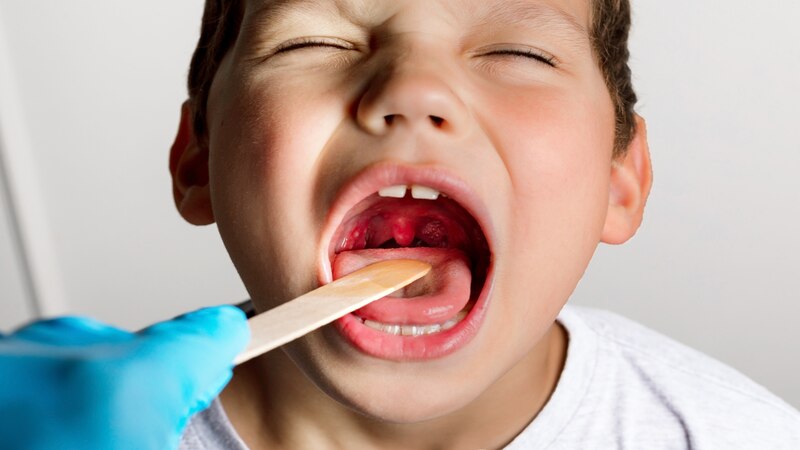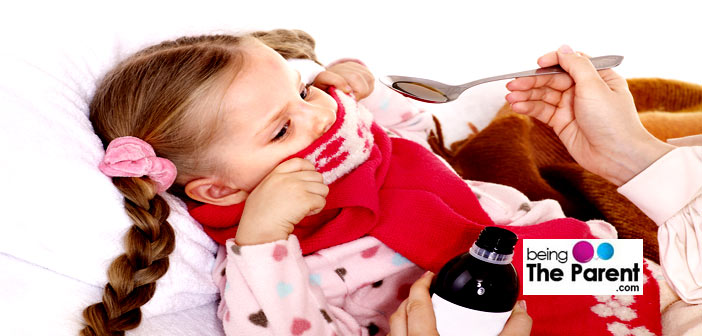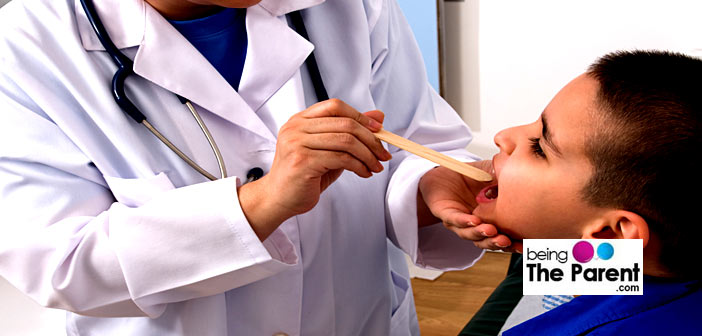
With the re-opening of schools and monsoon splashes, young kids are more prone to fall sick. The most common complaints include fever, headache and sore throat. Tonsillitis is one such condition
Tonsils are soft tissue masses located at the back of the throat below the tongue, one on each side of the mouth, the left and the right. They contain lymphatic tissue, i.e. containing lymphocytes which play an important role in body’s immune function. The lymph tissues produce antibodies to fight infection, thus keep sickness at a bay. Lymphatic tissues are present in other parts of the body too, such as spleen and adenoids.
What Is Tonsillitis?
When the tonsils themselves become infected while fighting foreign bodies, the condition is called tonsillitis. Often as the first line of defense, the tonsils may swell to varying sizes if the invading bacteria is rather too strong and manages to infiltrate the body.
It is most commonly caused by flu-inducing viruses (influenza) and bacteria (Streptococcus). These disease-causing germs spread very easily. They can be contracted through coughs and sneezes of the infected person or even by coming in direct contact with them since these germs stay on skin surface. If your skin comes in contact with the droplets of sneeze or cough from the infected person, then this may also result in infection.
What Are The Symptoms Of Tonsillitis In Kids?
Tonsillitis may affect both kids and adults, but are more common in children because their immune system is still underdeveloped. As they grow the body does not needs tonsils to fight out the infection. Below are most common signs of tonsillitis:
- Pain in swallowing and the kids refusing to eat
- Visible swelling of tonsils, sore throat and a yellowish coating on the tonsils
- Pain in ears, jaw and a runny nose
- Fever, chills, headache, bad breath
- Change or loss of voice

You need to take your kid to the physician if the symptoms do not improve after 3-4 days or if any of the following signs are observed:
- Difficulty breathing
- Difficulty drinking or eating or vomiting
- High temperature
- Swollen and tender tonsils
How Is Tonsillitis Diagnosed?
Often the swelling of tonsils is enough to diagnose tonsillitis. Since the above symptoms may be common in several throat-related conditions, below methods of diagnosis are also used:
- Physical examination by the physician: It is most likely that the physician will take a closer look at the tonsillitis usually by asking your child to open the mouth wider. He is probably checking for any pus pockets on tonsillitis, their extent as well as redness. The Physician may feel under the jaws of your child to determine swollen tonsils
- Laboratory testing: A swab testing may be suggested for kids with recurring tonsillitis or those exhibiting pus. Sometimes a blood test may also be prescribed to rule out other persisting infections
If My Child Has Tonsillitis, Will He Need To Get His Tonsils Out?
Usually the symptoms of tonsillitis tend to get better in 3-4 days, if this is not the case and sever symptoms are noticed, then its best to consult a physician. Often the first line of treatment is antibiotics. Depending on the diagnosed bacteria, your physician is likely to prescribe a course of antibiotics. Note: It is crucial to complete this course of antibiotics, even if your child’s condition seems to improve. This is because if the infection hits back then these bacteria will be resistant to the antibiotic, rendering treatment very difficult!
If antibiotics are unable to take care of the tonsillitis or there are repeated episodes of tonsillitis (Chronic tonsillitis), then the physician may recommend removal of tonsillitis (tonsillectomy). Also if the tonsillitis tends to linger for longer periods and impacts the daily functioning of an individual then this is another fact that your physician will consider in favor of tonsillectomy. Sometimes the tonsillitis gets complicated by formation of pus pockets, which further signals removal.
What If I Do Not Get Tonsillitis Treated?
Tonsillitis if left untreated is capable of spreading infection to other parts of the body, ear is the most common site. In case of recurring tonsillitis, it may cause acute sleep disturbances in children such as obstructive sleep apnea. It may also progress to rheumatic fever or even loss of hearing!

Tips For Home Management Of Tonsillitis Pain
- Gargling with warm water mixed with salt
- Sucking on lozenges
- You may provide a warm compress to your child and place it below jaw to ease swelling
- Ensure your child has plenty of fluids and rest. Since swallowing is painful, maximize the fluid intake by warm soups and semi-solid dishes such as Khichdi or sweet suji
NEVER give aspirin to your child unless prescribed by the doctor.
Enlarged Tonsils And Speech Problems In Toddlers
Speech required proper coordination and strength of muscles required to spell out the words. It often required pouting, touching the roof of the mouth and moving the lower jaw. Inflamed tonsils restrict such movements and induce pain. The mobility of tongue is particularly impacted. This leads to failure in generating the desired sound causing delay in language learning.
Prevention Of Tonsillitis In Kids
The viruses and bacteria causing tonsillitis can be contracted very easily. Below tips can help your kid dodge them:
- Advice your child to maintain distance from a friend who is suffering from flu, cough or fever
- Make sure you and your child follow a good hygiene. Washing hands frequently with a good anti-bacterial soap. Especially after indulging in physical play with friends, playing in playground, using toilet and before eating anything
- Invest in a hand sanitizer and anti-bacterial soap. (You must have definitely heard about the anti-bacterial soaps which kill 99.9% germs in just 10 seconds, go for them!)
- Cover nose and mouth in crowded places
Tonsillitis is not a serious condition, but like any other disease if not treated properly may lead to complications. You simply need to help your kid follow basic hygiene regimen and introduce immunity boosting items in his diet. It is equally important to let your kid run in the sunshine and cut the junk food intake. Why not give him company? Cheers to good health and motherhood!

